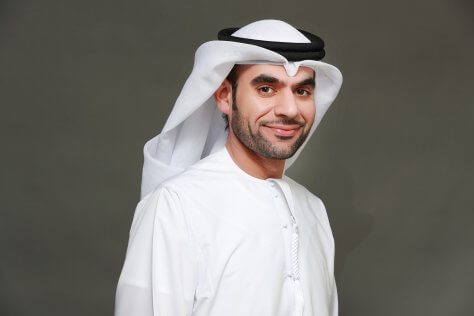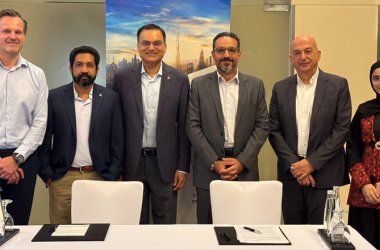Dubai, May 2, 2021: Smart Dubai and the Mohammed Bin Rashid University of Medicine and Health Sciences (MBRU) developed a novel epidemiological model to predict COVID-19 spread. The newly developed model is a specialised compartmental version of the SEIR (Susceptible-Exposed-Infected-Removed) model, widely used in epidemiology to mathematically model the spread of infectious diseases with incubation periods.
The SEIR model prototype is generally considered generic and unable to capture the unique nature of a novel viral pandemic, such as COVID-19. With that in mind, researchers at Smart Dubai and MBRU developed and tested a specialised version of the SEIR model, called SEAHIR (Susceptible-Exposed-Asymptomatic-Hospitalised-Isolated-Removed) model, which was better able to capture the unique dynamics of the COVID-19 outbreak. The work was recently published in the International Journal of Environmental Research and Public Health in a special issue called Infectious Disease Modeling in the Era of Complex Data on March 2021.
The newly developed model can forecast healthcare requirements through a very detailed framework. It also takes into consideration the impact of non-pharmaceutical interventions, such as physical distancing, and different testing strategies on the number of confirmed cases.
Smart Dubai had first used the model in its Smart Control Dashboard COVID-19, developed in partnership with Dubai’s COVID-19 Command and Control Centre to monitor and predict the spread of the novel coronavirus.

“This paper is a significant accomplishment as it outlines our data-driven approach to addressing the COVID-19 pandemic, with a special focus on the UAE and Dubai”, said His Excellency Younus Al Nasser, Assistant Director General of Smart Dubai, and CEO of the Dubai Data Establishment. “We are honoured to see our work with our partners at the Mohammed Bin Rashid University of Medicine and Health Sciences published in the renowned International Journal of Environmental Research and Public Health”.
“We, at Smart Dubai, have always believed data to be an exceptionally effective instrument for calculated decision-making”, H.E. added. “Our approach to handling the pandemic and its repercussions echoed our tactics to drive Dubai’s digital transformation and sustainable development, where we consistently rely on accurate data when planning Dubai’s transformation into the happiest smart city of the future”.
H.E. Al Nasser was one of six authors who developed the paper, alongside Dr. Alexandros Leontitsis and Dr. Aamena Alshamsi from Smart Dubai and Professor Alawi Alsheikh-Ali, Professor Abiola Senok, and Dr. Tom Loney from the College of Medicine at the Mohammed bin Rashid University of Medicine and Health Sciences.
Dr. Amer Sharif, Vice Chancellor, MBRU, and Head of the Dubai COVID-19 Command and Control Centre said MBRU was honored to collaborate on the development of a customised epidemiological model and working on this research paper emphasised the university’s ethos of giving back to the community and its role as a hub of impactful research activity in the UAE.

“Collaboration and sharing of knowledge, is key to ending the global pandemic. MBRU is committed to leading the way and it is a matter of immense pride that our university has made a notable contribution in shaping Dubai’s response to the pandemic, one that is governed by science and driven by data”, he said.
“I would like to congratulate the teams at Smart Dubai and MBRU and encourage continued deployment of expertise and knowledge to serve our communities”.
The team used a publicly available dataset from the UAE as a case study to optimise the main parameters of the model and benchmark it against the historical number of cases. The SEAHIR model was used by Dubai’s COVID-19 Command and Control Centre to make timely measures on developing testing strategies, increasing healthcare capacity, and implementing interventions to contain the spread of the virus.
The novel six-compartment SEAHIR model could be utilised and extended by decision makers and researchers in other countries for current or future pandemics.
The study can be accessed here: https://www.ncbi.nlm.nih.gov/pmc/articles/PMC7967501/





